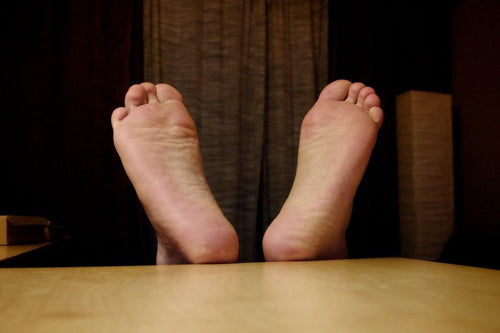According to Veganbits, 2% of the population in the U.S is vegetarian, and only 0.5% of Americans are vegan!
It's not a lot but remembers that the U.S is a huge country with more than 328,2 million inhabitants. If you are eco-conscious, then you know how there are better alternatives to everything in the world today. You just need to search for them. With sustainable shopping on the rise, people are opting for vegan shoes instead of animal-cruelty shoes.
But what are these eco-friendly and PETA-approved vegan shoes? How to make sure a pair of shoes is 100% vegan? Let’s take a look into these highly popular shoes.
What Are Vegan Shoes?
Vegan shoes are free from animal-derived ingredients and their various by-products. These include leather, down, wool, silk, and fur, among many others. Moreover, you will not find any material tested on animals in this category.
Over the years, with the increase in demand for eco-friendly products, vegan shoes for men/women have gone far better in terms of quality and variety. These feature synthetic materials like polyurethane, microfiber fabric, PVC, rubber, and even recycled resin soles.

If some Brands are 100% vegan, some others, like Loom Footwear, have incorporated eco-friendly animal cruelty free products in their running shoes. Not only are Loom earth-friendly products cheaper than their counterparts, but they are also durable, lightweight, and comfortable.
Why Are People Switching to Vegan Shoes?
Even though vegan shoes for men/women have petroleum-based synthetic materials as the main ingredient, they are certainly less polluting than animal-based products.
For example, Loom footwears leave a smaller carbon footprint, consume less water during production, and use only eco-friendly materials in their sneakers. It’s obvious, eco-conscious people are opting for the lesser evil.
So, what forces these people to go for vegan alternatives?
● Pollution
We all know why pollution is on the rise everywhere:
- Farmers cut down trees for agriculture and animal rearing
- Leather industries produce tons of toxic gases
Therefore, the air and land, both get affected. Besides polluting the air, such toxins from the factories even leak into the soil only to increase animal-borne infectious diseases in society.
● Animal-cruelty
Most importantly, people do not want to partake in animal-cruelty habits that are widely used in the fashion industry. These habits include:
- Harsh-handling of the animals
- Driving endangered species to extinction
- Separating mothers from their babies
- Killing them cruelly just for their hides.
● Recycled Material
Vegan shoes often have recycled materials, and they have a longer life-span as well. As a result, these alternatives help save the world one shoe at a time.
What Are Vegan-Friendly Materials?

Now that you know that vegan shoes are made from synthetic alternatives to animal-derived products, it’s time we discuss the different materials used by brands.
● Microfiber
Most commonly, industries use nylon, polyurethane, and polyamide in their microfibers. The different materials tend to make the final product quite soft.
Along with this, the fine pores of microfiber make it extremely lightweight and breathable too.
● Polyurethane
Polyurethane or PU is a popular alternative to the leather used for non-vegan shoes. Factories incorporate this vegan leather into the uppers and soles of the shoes, giving the same result as real leather.
The thick foam-like material is quite durable, flexible, and breathable, offering comfort and versatility to the users. Apart from this, the petroleum-based PU is more eco-friendly than vinyl leathers.
● Bio-Based Polyurethane
Compared to regular PU, the bio-based version is much more environment-friendly and sustainable. This new innovative PU is lightweight, waterproof, quite durable, and set to change the core of fashion industries.
● Recycled Rubber
In a world where people waste things daily, recycling rubber can help reduce pollution. Since you use recycled and remanufactured rubber, you can expect to leave no mess when you outgrow your shoes.
Brands have started this material for the soles and rubber boots.
● Cork
A natural and renewable source, cork can be grown organically and used in the soles of vegan shoes for men/women. Not only is it biodegradable, but it is also quite breathable and lightweight.
Additionally, cork is antimicrobial and fire-resistant too. Thus, you can rest assured that your shoes will not be home to bad odors and bacteria.
On the negative side, it has a very distinct appearance.
● Goretex
Since this material is windproof, lightweight, and breathable, it is well-suited for outdoor, hiking, and walking shoes. Along with this, its waterproof membrane allows vapor to pass through, offering you hygiene by keeping your feet dry.
As it is sustainable, brands have preferred to use this synthetic vegan material to produce comfortable and high-quality shoes for their customers.
● Microsuede
A form of microfiber, microsuede, is a synthetic polyester with thin fibers that look and feel like real suede. It is stain-proof, easy-to-clean, durable, and has various uses.
Even though this material is vegan-friendly, the tiny microfibers end up being washed into our water supply. In return, this makes them less sustainable than other fabrics.
● Cotton
A vegan-friendly fiber, cotton is a renewable material that can be produced under organic conditions. It is soft, breathable, comfortable, and used all over the fashion industry.
Compared to leather, this material uses much less water in its production, making it the lesser of the two evils.
● Hemp
People have used hemp to produce clothes for over 10000 years. Recently, brands started incorporating them into footwear by creating a soft and robust fabric by using enzymatic processes.
A renewable plant-based fiber, hemp has a lot of advantages to other materials. It is durable, lightweight, breathable, and takes up dyes well due to its porous nature.
Besides this, the plant itself grows fast, easy-to-care, and requires minimum pesticides.
How Do You Recognize Vegan Shoes?
It can be quite challenging to recognize animal-friendly vegan shoes among the large variety of non-vegan shoes. How would you know if the brands use leather or faux leather in their shoes?
A lot of manufacturers and brands label their shoes and provide information regarding the materials used in their shoes.
Thus, before purchasing your shoes, check their tags, and avoid all shoes made from animal skins, wool, feather, leather, and fur. Since vegan shoes are made from human-made synthetic fibers and fabric, opt for shoes made from PVC, PU, rubber, cotton, or cork.
Some brands even mark their shoes with symbols for leather, coated leather, textile, and other materials. The latter two are vegan-friendly and include the symbols of textile and a diamond, respectively.
Apart from this, you have to be careful about the soles and inner lining of the shoe too. For example, some shoes will have a faux leather exterior but wool-lined slippers inside.
With a rise in trend for vegan-friendly products, even high-end brands are opting for eco-friendly alternatives. Such that, they have replaced shearling with PU plastics, fur with faux fur, snakeskin by resin, and suede by faux suede.
Best Animal Cruelty-Free Shoes - Loom Footwear

Loom Footwear was founded by a team of expert podiatrists, designers, and engineers to provide high-quality yet earth-friendly shoes to people. They aim to offer comfort to society in every step of their life.
● Eco-Friendly
These shoes have been produced from 100% cruelty-free materials, making them one of the best eco-friendly shoes in the market. The brand is devoted to sustainable alternatives to help reduce pollution in our environment.
Loom footwear has sourced all its materials from eco-friendly farms around the world. Such farms follow hydroponics, permaculture, polyculture, crop rotation, and renewable energy sources.
Thus, you can rest assured that the eco-friendly shoes use only minimum fossil fuels and water in the factories. Furthermore, the brand has made sure that the carbon footprint by each pair of shoes is reduced by over 500%.
● Comfort
Loom footwear is quite lightweight on your feet, allowing you to jog and hike with ease. Their flexible construction with Exelcast Sole and cushion will enable you to climb steep hills and terrain without putting pressure on your ankle.
These soft yet durable cushions can regulate the temperature of your feet in summers and winters, both. Expert podiatrists developed the sole to provide maximum support to your feet and deliver optimum energy returns.
Such that, its impact-resistant construction protects your feet from shock, fatigue, and pain. In return, you can walk or jog for the whole day without feeling any discomfort.
● Waterproof
Loom footwear has four breathable and waterproof layers in its exterior. Its 3D mesh and Cosmo technology help to absorb and let out moisture from the air, ensuring that your feet stay dry even after working out for hours.
What’s more? The moisture-wicking waterproof exterior allows you to go in the rain or snow without worrying at all. The shoes will keep your feet dry even in wet conditions. Moreover, these features make it quite easy to clean the shoes.
Conclusion
Over the years, people are switching to vegan-friendly and eco-conscious products to combat widespread pollution and animal cruelty in the world. This is why vegan shoes are high on demand.
Loom footwear allows you to go through your day with style and comfort without harming our fragile environment. Not only are these shoes animal-cruelty-free, but they are made using sustainable practices to ease the mind of all the eco-conscious people.
Hopefully, this article has emphasized on all the properties of vegan shoes to help you choose your next shoes smartly.





